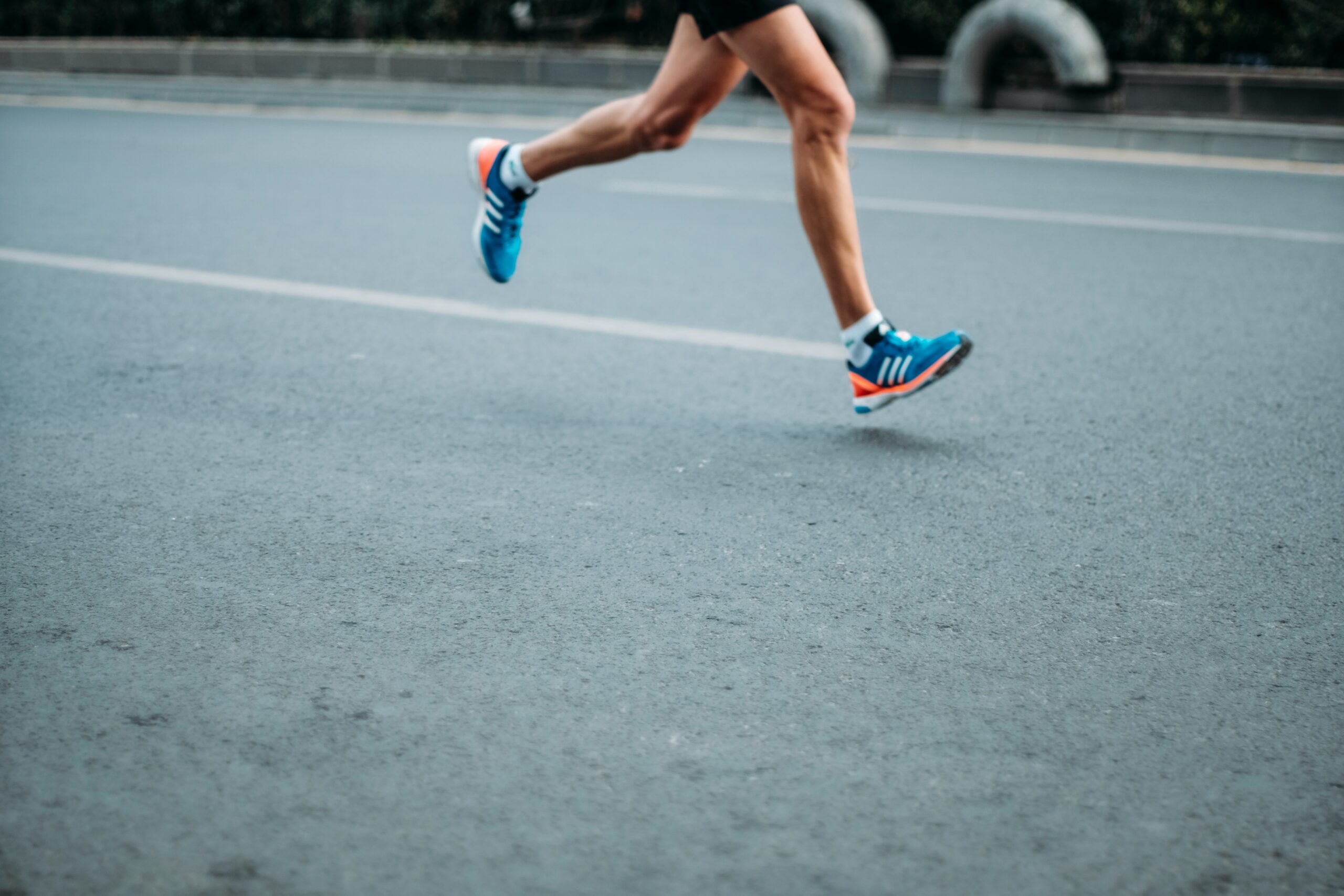When considering enhancing your jogging performance, paying attention to your nutrition is just as crucial as putting in the miles. Fueling your body with the right foods can make a significant difference in your endurance levels, allowing you to run longer, stronger, and with more ease. In this blog post, we will explore the best foods to eat before, during, and after your jogging sessions to maximise your endurance and overall running experience. From complex carbohydrates to lean proteins and hydrating fluids, we will provide you with a comprehensive guide to help you optimise your nutrition for peak jogging performance. So lace up your running shoes and get ready to fuel your body for success!
Key Takeaways:
- Carbohydrates are key: Prioritise carbs in your pre-jogging meal to fuel your endurance and performance.
- Include lean proteins: Incorporate lean proteins like chicken, fish, or tofu to aid in muscle recovery post-jogging.
- Don’t forget healthy fats: Add sources of healthy fats such as avocados, nuts, and seeds to support overall health and sustained energy levels.
- Stay hydrated: Hydration is crucial for optimal performance, so drink water before, during, and after your run.
- Avoid heavy or high-fat meals: Steer clear of heavy or high-fat meals before jogging to prevent digestive discomfort and sluggishness.
Understanding Endurance Running
Physiological Demands of Long-Distance Jogging
Long-distance jogging places significant physiological demands on the body, requiring efficient energy production, oxygen utilisation, and heat regulation. Endurance runners need to have a well-developed cardiovascular system to deliver oxygen-rich blood to working muscles and maintain a steady pace over prolonged periods.
Key Factors Determining Endurance Performance
Endurance performance in running is influenced by several key factors, including aerobic capacity, lactate threshold, running economy, and mental resilience. Aerobic capacity, or VO2 max, represents the maximum amount of oxygen an individual can use during intense exercise and is a crucial determinant of endurance performance.
- Lactate threshold is the point at which lactic acid begins to accumulate in the muscles, leading to fatigue.
- Running economy refers to how efficiently a runner uses oxygen at a given pace.
- Mental resilience plays a significant role in overcoming challenges and pushing through discomfort during long-distance runs.
Perceiving and understanding these key factors can help runners tailor their training and nutrition strategies to improve their endurance performance over time.
Optimizing Nutrition for Joggers
Macronutrients for Endurance
For joggers looking to maximise their endurance, it is crucial to focus on the right balance of macronutrients. Carbohydrates should be a key component of your diet to provide the necessary energy for long runs. Including a moderate amount of healthy fats can help sustain energy levels during the run, while protein is important for muscle repair and recovery post-run. It is important to tailor your macronutrient intake to your individual needs and the intensity of your runs.
Micronutrients and Hydration
In addition to macronutrients, paying attention to micronutrients and hydration is crucial for joggers. Electrolytes such as sodium, potassium, and magnesium play a vital role in maintaining proper muscle function and hydration levels. Ensuring you consume an adequate amount of vitamins and minerals through a varied diet or supplementation can help support overall health and performance. Staying hydrated before, during, and after your runs is also crucial to prevent dehydration and optimise performance.
Pre- and Post-Run Nutrition
What to Eat Before Jogging
Prior to heading out for a run, it’s important to fuel your body with the right nutrients to optimise your performance. Aim to consume a balanced meal containing high-quality carbohydrates for energy, moderate amounts of protein for muscle repair, and healthy fats to sustain you through your workout. Consider options like a banana with almond butter, Greek yoghurt with granola, or a whole grain toast with avocado.
Recovery Nutrition: What to Eat After a Run
After completing a run, your body requires replenishment to aid recovery and muscle repair. Focus on consuming a mix of carbohydrates to replenish glycogen stores, protein to repair muscles, and fluids to rehydrate. Opt for nourishing options such as a smoothie with fruit and protein powder, a turkey sandwich on whole grain bread, or a bowl of oatmeal topped with nuts and berries. It’s important to refuel within 30 minutes of finishing your run to maximise recovery benefits.
Post-run nutrition plays a crucial role in promoting muscle recovery and replenishing energy stores. Including a balance of macronutrients in your post-run meal or snack can enhance recovery time and prepare your body for future workouts. Additionally, staying hydrated and listening to your body’s hunger cues are key aspects of effective recovery nutrition.
Meal Planning and Practical Advice
Sample Meal Plans for Joggers
When planning meals as a jogger, it’s important to focus on a balance of carbohydrates, proteins, and healthy fats to fuel your runs and aid recovery. A sample meal plan could include a breakfast of overnight oats with berries and nuts, a lunch of a quinoa salad with grilled chicken, and a dinner of roasted salmon with sweet potatoes and greens. Snacks like Greek yoghurt with honey or a banana with almond butter can help keep energy levels up throughout the day.
Timing Your Meals Around Training
Timing your meals around your training schedule can make a significant difference in your performance and recovery. It’s generally recommended to eat a meal containing carbohydrates and protein 2-3 hours before a run to provide the necessary energy and nutrients. After a run, refuelling within 30 minutes with a snack like a protein shake or chocolate milk can help kickstart the recovery process.
Additionally, spacing out your meals and snacks evenly throughout the day can help maintain a steady energy level and ensure your body has a constant supply of nutrients. Experiment with different timings and meal compositions to find what works best for your individual needs and preferences.
Conclusion: Jogging and Nutrition – What to Eat for Endurance
In the aggregate, maintaining a balanced diet rich in carbohydrates, proteins, healthy fats, and hydration is crucial for joggers looking to enhance their endurance. Consuming whole foods such as fruits, vegetables, whole grains, lean proteins, and nuts can provide the necessary nutrients for sustained energy levels during long runs. Additionally, incorporating snacks like energy bars, bananas, and nut butter sandwiches can help replenish glycogen stores and sustain performance. Proper hydration before, during, and after jogging is also imperative for optimal performance and recovery. By prioritising nutrition alongside regular training, joggers can maximise their endurance potential and enjoy improved performance on the track or trail.
FAQ
Q: What are the benefits of combining jogging with proper nutrition?
A: Jogging combined with proper nutrition can enhance endurance, strength, and overall performance. It provides the necessary fuel for your body to sustain long-distance runs and recover effectively.
Q: What should I eat before a long-distance jog to improve endurance?
A: Before a long-distance jog, opt for a balanced meal containing carbohydrates for energy, lean protein for muscle repair, and a small amount of healthy fats. Examples include oatmeal with nuts and fruit, or whole grain toast with peanut butter.
Q: How can my nutrition during a jog help me sustain endurance?
A: During a jog, consume easily digestible carbohydrates such as energy gels, bananas, or sports drinks to maintain blood sugar levels and delay fatigue. Stay hydrated with water or electrolyte drinks.
Q: What are some post-jogging nutrition tips for optimal recovery?
A: After jogging, refuel with a balanced meal containing protein to repair muscles, carbohydrates to replenish glycogen stores, and fluids to rehydrate. Examples include a turkey sandwich with a side salad or a smoothie with protein powder.
Q: How important is hydration for jogging endurance?
A: Hydration is crucial for jogging endurance as water regulates body temperature, transports nutrients, and aids in muscle function. Dehydration can lead to fatigue, cramps, and decreased performance. Remember to drink water before, during, and after your jog.






